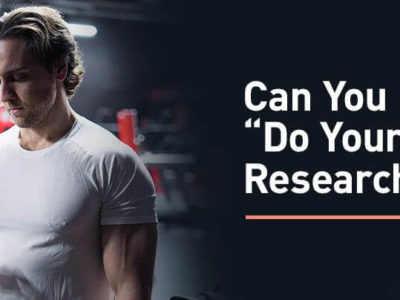
Evidence Based
There’s no denying that plant foods are vital for maintaining optimal health and performance.
A large body of evidence shows that people who eat higher amounts of fruits, vegetables, and whole grains are generally healthier and more likely to live longer, disease-free lives than those who don’t eat enough of them.
Naturally, there are crackpot contrarians who claim plant foods (especially carbs) are actually causing weight gain, “leaky gut,” global warming, inflation, and racism, but these folks are (thankfully) spurned by many.
Some plant-based proponents swing to the other extreme, though, and posit that vegan and vegetarian diets are clearly superior to omnivorous ones. Is this really true, though? Is giving up meat or animal products really necessary to optimize your health, or is it enough to simply make sure you eat plenty of plant foods?
Keep reading to learn the answer.
The Pros of Plant-Based Dieting
Fruits and vegetables provide essential vitamins and minerals, but they also contain other types of phytonutrients that benefit health in various ways.
Two good examples of this are sulforaphane and anthocyanins, phytonutrients found mainly in broccoli and blueberries and known to reduce cancer risk, cellular wear-and-tear, and cholesterol levels, but are not found on food labels, which list only vital-to-life nutrients. Many of these additional nutrients aren’t in multivitamins or other supplements, either, so pills and powders can’t replace the real McCoy.
Fiber is another (often overlooked) component of plant foods that deserves attention. Fiber is an indigestible type of carbohydrate found in many types of foods, including fruits, vegetables, legumes, nuts, and grains.
Its importance has been known for a long time—the ancient Greek physician Hippocrates, who famously said “let food be thy medicine, and medicine be thy food,” recommended whole-grain breads to improve bowel movements—and modern scientific research has confirmed that eating enough fiber increases your chances of living a long and healthy life.
The Problem with Plant-Only Dieting
While healthy eating necessarily includes a wide variety of plants and vegetables, ranging from dark, leafy greens to garlic to cruciferous vegetables to cereal grains and more, that doesn’t mean eating only those foods is ideal, and especially if you’re trying to improve your body composition.
For instance, gaining muscle is trickier as a vegan or vegetarian because it’s difficult to eat enough high-quality, well-absorbed protein. This partly explains why studies have shown omnivores tend to have more muscle than vegetarians and vegans.
You can work around this issue by carefully choosing certain plant foods that are rich in suitable protein (like peas, beans, and nuts), but even then, you’ll likely have to eat quite a lot of these foods or include supplements in your regimen to meet your daily protein needs.
Studies show that certain micronutrient deficiencies are more common among vegans than omnivores, too, including vitamin B12, omega-3 fatty acids, zinc, calcium, and others. You can mitigate this problem by consuming a variety of different micronutrient-dense foods, but to fill in all of the gaps, you’ll also need to supplement strategically.
There’s another (and arguably better) way to get enough premium protein and key nutrients, though: Simply include animal foods in your diet, and specifically red meat, poultry, seafood, dairy, and eggs.
Some call this a “flexitarian diet.” I just call it a “healthy” diet.
That’s controversial advice nowadays, though. Take red meat, for instance, which many plant-based apostles liken to cigarettes. Just a serving or two of red meat per day, they say, is enough to markedly impair your health and wellness.
A cursory review of the scientific evidence doesn’t offer much insight. Some studies seem to show that red meat is indeed bad for you, others suggest it’s benign, and others indicate it’s actually good for you.
Unriddling the matter would require a book unto itself, but the long and short is twofold:
- The argument against eating red meat relies on evidence that shows an association between red meat (particularly processed red meat) and cancer and heart disease. It’s worth noting, though, that much of this research is based on relatively low-quality studies involving sedentary, often overweight people following a standard Western diet awash with highly processed foods. Thus, it’s hard to say how eating red meat or even processed red meats would affect active, lean, healthy people who are also eating lots of fresh fruits, vegetables, and whole grains.
- The highest quality research available on red meat eating shows that it isn’t unhealthy and that reducing red meat consumption has no significant benefit. Moreover, meat also provides a good source of protein and nutrients difficult to get with vegetarian and vegan diets, like iron, zinc, and creatine.
Dairy and eggs are two more animal foods often wrongfully attacked as unhealthy. Despite claims to the contrary, studies show that milk doesn’t cause weight gain or cancer, doesn’t degenerate your bones, and doesn’t contain unhealthy amounts of hormones, pus, or blood. Research also shows that eggs don’t raise cholesterol levels or increase the risk of heart disease.
So, while you can get and stay fit, lean, strong, and healthy on a vegan or vegetarian diet, it’s easier to mess up than with a well-designed omnivorous one.
Following a vegan or vegetarian diet for religious or ethical reasons is a different matter, but it’s hard to make a case that shunning meat or animal products is the healthiest way to eat.
A better choice is a plant-centric diet with plenty of fruits, vegetables, legumes, and whole grains as well as a variety of nutritious (and protein-rich) animal products including beef, poultry, fish, eggs, and dairy.
+ Scientific References
- DL, K., MA, E., H, N., VY, N., W, C., BP, C., & ML, H. (2005). Egg consumption and endothelial function: a randomized controlled crossover trial. International Journal of Cardiology, 99(1), 65–70. https://doi.org/10.1016/J.IJCARD.2003.11.028
- MA, F., GB, N., TC, F., R, K., & G, K. (1979). Effect of dietary egg on human serum cholesterol and triglycerides. The American Journal of Clinical Nutrition, 32(5), 1051–1057. https://doi.org/10.1093/AJCN/32.5.1051
- RJ, C., & DE, B. (2014). Update on human health concerns of recombinant bovine somatotropin use in dairy cows. Journal of Animal Science, 92(4), 1800–1807. https://doi.org/10.2527/JAS.2013-7383
- PJ, H., DB, D., & GD, M. (2006). Major scientific advances with dairy foods in nutrition and health. Journal of Dairy Science, 89(4), 1207–1221. https://doi.org/10.3168/JDS.S0022-0302(06)72190-7
- J, Z., M, S., S, D., T, C., & S, Z. (2015). The Association between Dairy Intake and Breast Cancer in Western and Asian Populations: A Systematic Review and Meta-Analysis. Journal of Breast Cancer, 18(4), 313–322. https://doi.org/10.4048/JBC.2015.18.4.313
- L, S., G, H., C, S., T, K.-U., B, M., S, K., & H, B. (2016). Consumption of Dairy Products in Relation to Changes in Anthropometric Variables in Adult Populations: A Systematic Review and Meta-Analysis of Cohort Studies. PloS One, 11(6). https://doi.org/10.1371/JOURNAL.PONE.0157461
- A, P., Q, S., AM, B., MB, S., JE, M., MJ, S., WC, W., & FB, H. (2012). Red meat consumption and mortality: results from 2 prospective cohort studies. Archives of Internal Medicine, 172(7), 555–563. https://doi.org/10.1001/ARCHINTERNMED.2011.2287
- BC, J., D, Z., MA, H., RWM, V., C, V., R, E. D., C, M., PJ, S., S, F.-T., G, W., F, B., R, de S., C, B., JJ, M., CJ, P., B, D., P, A.-C., MM, B., & GH, G. (2019). Unprocessed Red Meat and Processed Meat Consumption: Dietary Guideline Recommendations From the Nutritional Recommendations (NutriRECS) Consortium. Annals of Internal Medicine, 171(10), 756–764. https://doi.org/10.7326/M19-1621
- WJ, C. (2010). Nutrition concerns and health effects of vegetarian diets. Nutrition in Clinical Practice : Official Publication of the American Society for Parenteral and Enteral Nutrition, 25(6), 613–620. https://doi.org/10.1177/0884533610385707
- JR, H. (2003). Bioavailability of iron, zinc, and other trace minerals from vegetarian diets. The American Journal of Clinical Nutrition, 78(3 Suppl). https://doi.org/10.1093/AJCN/78.3.633S
- Rosell, M. S., Lloyd-Wright, Z., Appleby, P. N., Sanders, T. A., Allen, N. E., & Key, T. J. (2005). Long-chain n–3 polyunsaturated fatty acids in plasma in British meat-eating, vegetarian, and vegan men. The American Journal of Clinical Nutrition, 82(2), 327–334. https://doi.org/10.1093/AJCN/82.2.327
- W, H., H, S., R, O., & J, G. (2003). Vitamin B-12 status, particularly holotranscobalamin II and methylmalonic acid concentrations, and hyperhomocysteinemia in vegetarians. The American Journal of Clinical Nutrition, 78(1), 131–136. https://doi.org/10.1093/AJCN/78.1.131
- M, A.-L., & H, A. (2009). Relationship between animal protein intake and muscle mass index in healthy women. The British Journal of Nutrition, 102(12), 1803–1810. https://doi.org/10.1017/S0007114509991310
- Y, P., AF, S., A, H., & A, S. (2011). Dietary fiber intake and mortality in the NIH-AARP diet and health study. Archives of Internal Medicine, 171(12), 1061–1068. https://doi.org/10.1001/ARCHINTERNMED.2011.18
- JM, A.-S., F, G., S, T., T, C., G, D. S., AM, G.-P., C, S.-B., F, B., JL, Q., MD, C., S, B., B, M., & M, B. (2014). One-month strawberry-rich anthocyanin supplementation ameliorates cardiovascular risk, oxidative stress markers and platelet activation in humans. The Journal of Nutritional Biochemistry, 25(3), 289–294. https://doi.org/10.1016/J.JNUTBIO.2013.11.002
- TW, S., LG, N., M, K., LS, S., C, H., T, T., AM, W., JM, C., PB, B., JW, F., & A, S. (2018). Sulforaphane Augments Glutathione and Influences Brain Metabolites in Human Subjects: A Clinical Pilot Study. Molecular Neuropsychiatry, 3(4), 214–222. https://doi.org/10.1159/000487639
- BG, C., E, M., JM, L., Y, C., E, D. N., L, C., R, L. S., AR, A., & N, M. (2015). Effect of Sulforaphane in Men with Biochemical Recurrence after Radical Prostatectomy. Cancer Prevention Research (Philadelphia, Pa.), 8(8), 712–719. https://doi.org/10.1158/1940-6207.CAPR-14-0459
- Jones, J. M., García, C. G., & Braun, H. J. (2020). Perspective: Whole and Refined Grains and Health—Evidence Supporting “Make Half Your Grains Whole.” Advances in Nutrition, 11(3), 492–506. https://doi.org/10.1093/ADVANCES/NMZ114
- Wang, X., Ouyang, Y., Liu, J., Zhu, M., Zhao, G., Bao, W., & Hu, F. B. (2014). Fruit and vegetable consumption and mortality from all causes, cardiovascular disease, and cancer: systematic review and dose-response meta-analysis of prospective cohort studies. BMJ, 349. https://doi.org/10.1136/BMJ.G4490
- BC, J., D, Z., MA, H., RWM, V., C, V., R, E. D., C, M., PJ, S., S, F.-T., G, W., F, B., R, de S., C, B., JJ, M., CJ, P., B, D., P, A.-C., MM, B., & GH, G. (2019). Unprocessed Red Meat and Processed Meat Consumption: Dietary Guideline Recommendations From the Nutritional Recommendations (NutriRECS) Consortium. Annals of Internal Medicine, 171(10), 756–764. https://doi.org/10.7326/M19-1621
If you enjoyed this article, get weekly updates. It’s free.
Sending…
Great! You’re subscribed.
100% Privacy. We don’t rent or share our email lists.
You May Also Like
Our Most Popular Evidence-Based Articles
Our “It’s On Us” 100% Money-Back Guarantee
No matter what you decide to buy, you’re always protected by our ironclad, 100% money-back guarantee that works like this:
If you don’t absolutely love our stuff for whatever reason, you get a prompt and courteous refund. No forms to fill out or hoops to jump through.
That means you can say “yes” now and decide later. You really have nothing to lose.
Free Worldwide Shipping & Returns
Many companies use shipping and handling fees to increase their profit margins, but here at Legion, we hate profits so our shipping is 100% free!
Okay, we do dig on profits, but we also go in for happy customers, and free shipping works like gangbusters.
So, if you live in the United States, your order ships free regardless of order size, and if you live anywhere else, your order ships free when it’s over $199.
Why the restriction on international orders? Unfortunately, shipping abroad is very expensive, and if we didn’t require a minimum order size, we’d lose a lot of money.
That said, as most international customers spend about $200 with us each time they shop, this setup is a win-win.
And no matter what you decide to buy, you’re always protected by our ironclad, 100% money-back guarantee that works like this:
If you don’t absolutely love our stuff for whatever reason, you get a prompt and courteous refund. No forms to fill out or hoops to jump through.
That means you can say “yes” now and decide later. You really have nothing to lose.
Clinically Effective Doses
Great ingredients aren’t enough to make a great product—you also need correct doses.
That’s why we use the exact doses of every ingredient that have safely produced the desired benefits in peer-reviewed studies.
Made in USA
Where your supplements are made matters, because rules and regulations regarding quality and purity differ from country to country.
And if you want to ensure the supplements you’re swallowing every day are safe and effective, you want products produced in the USA.
That’s why all of our supplements are made in America in NSF-certified and FDA-inspected facilities that operate in accordance with the Current Good Manufacturing Practice (cGMP) regulations.
We pay a premium to work with the best manufacturers in the country, but it’s the only way we can also produce the best all-natural sports supplements.
Lab Tested
Did you know that studies have shown that many supplements contain dangerously high levels of toxins like lead, arsenic, and cadmium?
Not ours.
Every ingredient of every supplement we produce is tested for heavy metals, microbes, allergens, and other contaminants to ensure they meet the strict purity standards set by the FDA.
Naturally Sweetened & Flavored
While artificial sweeteners may not be as dangerous as some people claim, studies suggest that regular consumption of these chemicals may indeed be harmful to our health and that more research is needed.
That’s why all of our supplements are naturally sweetened and flavored and contain no artificial food dyes, fillers, or other unnecessary junk.
Science-Backed Ingredients & Doses
Unlike some supplement companies, we don’t sell dubious white labeled or off-the-shelf formulations.
Instead, our custom and unique formulations are the result of extensive reviews of the scientific literature to discover the most effective ingredients for each.
Split your entire online purchase into 4 interest-free payments, over 6 weeks with no impact to your credit.

25%
today
25%
2 weeks
25%
4 weeks
25%
6 weeks

Shop and add items to your cart as normal!

Choose Sezzle at Checkout! You’ll be redirected to Sezzle to Sign Up or Log In
to complete your order.

Your order will be shipped out right away* and your payments will be split up
over 6 weeks.
*shipping times subject to merchant shipping policy
Shop directory. Reschedule payments. Plus more!
Waiver and Release of Liability
In consideration of the services and/or products offered by Legion Athletics, Inc. (“Legion”) including, but not limited to, nutrition plans, exercise routines and coaching, and in addition to the payment of any fee or charge:
I knowingly and voluntarily enter into this waiver and release of liability and hereby waive any and all rights, claims or causes of action of any kind whatsoever arising out of my use of Legion’s services and/or products, and I hereby release and hold harmless Legion and its consultants, officers, contractors, agents, owners and employees from any and all responsibility, liability, cost and expenses, including for injuries, damages or disorders (physical, metabolic, or otherwise), resulting from my use of Legion’s services and/or products.
I understand that fitness activities including, but not limited to, strength, flexibility, and cardiovascular exercise, with or without the use of equipment, are potentially hazardous activities that involve a risk of injury and even death, and I am voluntarily participating in these activities and using equipment and machinery with knowledge of the risks involved. I hereby agree to assume and accept any and all risks of injury or death related to said fitness activities.
I understand Legion’s services and products are not meant to treat or manage any health conditions or circumstances, and I acknowledge that Legion has recommended I obtain a healthcare provider’s approval for my use of Legion’s services and/or products, through regular physical examination(s) and/or consultation. I acknowledge that I have obtained my healthcare provider’s approval or have decided to use Legion’s services and/or products without such approval and hereby assume all responsibility for my use of said services and/or products.
I understand that results from using Legion’s products and/or services are not guaranteed, and I agree to not hold Legion liable for any outcomes or lack thereof.
OUT OF STOCK
Security Check
Please click the checkbox below. We apologize for the inconvenience.
Fact Checked
Our scientific review board of nutritionists, dietitians, molecular biologists, doctors, and other accredited experts is responsible for reviewing every article, podcast, and video we produce to ensure they’re evidence based, accurate, trustworthy, and current.
Thanks to their connections, credentials, and academic experience, this team of MDs, PhDs, and other professionals has access to a wealth of research published in the largest and most prestigious journals in the world.
This allows them to not only review individual studies but also analyze the overall weight of the evidence on any and all topics related to diet, exercise, supplementation, and more.
If you feel that any of our content is inaccurate, misleading, out-of-date, or anything less than factual, please let us know in the comments section of the article in question.
Evidence Based
We follow a detailed, rigorous, multi-step process to create content that meets the highest standards of clarity, practicality, and scientific integrity.
First, our research associates provide our editorial team with accurate, up-to-date, proven scientific evidence.
Then, our editorial team uses this research to draft articles and outlines for podcasts and videos.
Finally, our scientific review board reviews the content to ensure all key information and claims are backed by high-quality scientific research and explained simply and precisely.
If you feel that any of our content is inaccurate, misleading, out-of-date, or anything less than factual, please let us know in the comments section of the article in question.








